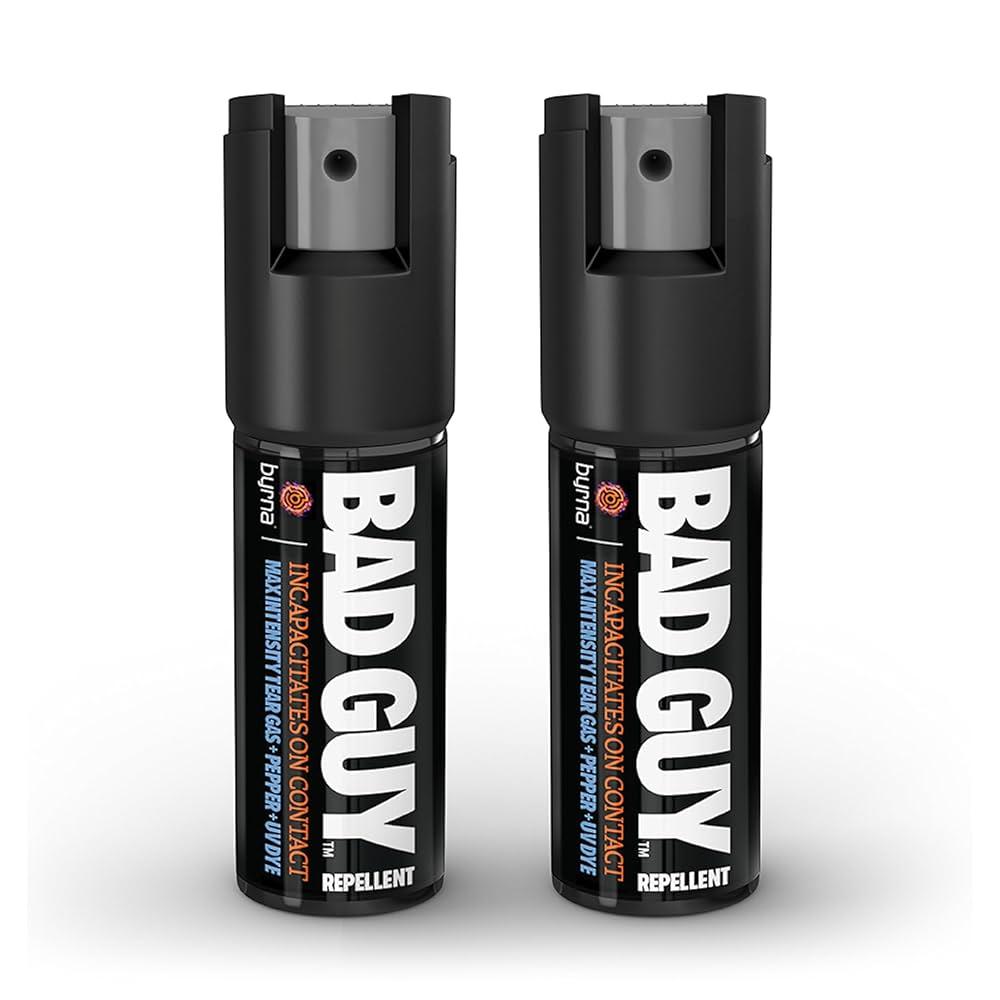Table of Contents
- Understanding Legal Criteria for Justifiable Pepper Spray Use
- Recognizing Situations That Warrant Self-Defense Measures
- Navigating State Laws and Restrictions on Pepper Spray Possession
- Best Practices for Responsible and Safe Pepper Spray Usage
- The Way Forward
Understanding Legal Criteria for Justifiable Pepper Spray Use
Before reaching for pepper spray, it’s crucial to understand the legal boundaries that govern its use. Most jurisdictions permit its deployment exclusively for self-defense, which means you must reasonably perceive an imminent threat to your personal safety. The force applied with pepper spray should always be proportionate to the threat encountered-using it in response to non-threatening situations or as a form of retaliation can lead to legal repercussions. Additionally, some laws specify where and how pepper spray can be carried, such as restrictions on size, concentration, and authorized users, often limiting possession to adults or individuals with specific permits.
When considering if an action qualifies as justifiable use, courts generally look for evidence that the response was necessary and immediate. Key factors include:
- Immediacy of the threat: There must be a clear and present danger that cannot be avoided.
- Proportionality: The level of force-pepper spray-must be appropriate to counter the threat.
- Intent: The spray should be used solely for defensive purposes, not for intimidation or aggression.
Awareness of these criteria not only protects you legally but empowers you to make informed decisions about when and how to defend yourself responsibly.
Recognizing Situations That Warrant Self-Defense Measures
Understanding when to use pepper spray legally requires a clear recognition of the circumstances that justify self-defense. It is essential to assess situations where your personal safety is genuinely at risk, such as facing an imminent physical attack or being threatened with harm. Self-defense measures are typically considered reasonable when you believe there’s an immediate danger that cannot be avoided or escaped. Always remember that pepper spray is meant to neutralize or deter an aggressor temporarily-not to be used as a first response in minor disputes or verbal disagreements.
Situations that might warrant deploying pepper spray include:
- Being followed or cornered by a stranger in a secluded area
- Encountering an aggressive animal attacking or attempting to attack
- Facing physical violence where retreat or calling for help is not feasible
- Defending yourself against any assault that threatens bodily harm
By recognizing these valid triggers for self-defense, users can act within the boundaries of the law and ensure their actions are perceived as justified. Always stay aware of local regulations and verify that your response is proportional to the threat encountered.
Navigating State Laws and Restrictions on Pepper Spray Possession
Understanding the legal landscape surrounding pepper spray is crucial before carrying or using it. State laws can vary significantly, impacting possession limits, permissible types, and even the concentrations of active ingredients allowed. Some states require individuals to be a certain age, often 18 or older, to legally possess pepper spray, while others may have restrictions on carrying it in sensitive places like schools, government buildings, or public transportation. Additionally, a few states mandate that the user obtain certification or complete safety training before purchase and use. Failing to comply with these regulations can result in fines, confiscation, or even criminal charges.
To navigate these restrictions effectively, it’s important to review state-specific rules and exceptions. Here are some key points to remember:
- Check for size and concentration limits: Many states impose maximum volume or concentration restrictions on pepper spray products.
- Know the authorized methods of carrying: Open carry vs. concealed carry rules may differ.
- Be aware of prohibited locations: Some areas strictly forbid carrying pepper spray regardless of intent.
- Understand legal uses: Using pepper spray outside self-defense scenarios, such as in retaliation or aggression, can be unlawful.
Best Practices for Responsible and Safe Pepper Spray Usage
Using pepper spray demands a clear understanding of both its power and limitations. Always ensure your device is within reach but stored securely to prevent unauthorized access, especially by children. Before any application, aim only at an assailant’s eyes, nose, or mouth, maximizing the deterrent effect while minimizing the risk of permanent injury. To maintain effectiveness, regularly check expiration dates and test sprays in a safe environment to familiarize yourself with its range and spray pattern. Remember, avoid using it in enclosed spaces where self-exposure or bystander harm is a real possibility.
Responsible usage also means understanding the legal and ethical boundaries around pepper spray. Never use it as a tool for aggression, but rather strictly for self-defense situations where you feel legitimately threatened. Carrying documentation of your pepper spray possession, if required by local laws, can help avoid legal complications. Additionally, consider completing self-defense courses that include pepper spray training to sharpen both your confidence and technique. Adopting these best practices will ensure you protect yourself effectively while respecting the law and safety of others.
- Store securely: Keep away from children and unauthorized users.
- Regular maintenance: Check expiration and functionality periodically.
- Aim carefully: Target face areas to maximize effect and reduce harm.
- Be mindful of environment: Avoid closed spaces to prevent self-exposure.
- Legal awareness: Know your local laws on possession and usage.
- Training: Consider professional instruction to use spray confidently and safely.
The Way Forward
In the realm of personal safety, understanding when the use of pepper spray is legally justified is crucial. While it can be an effective means of self-defense, its use must always align with local laws and regulations to avoid unintended legal consequences. By knowing your rights, recognizing legitimate threats, and using pepper spray responsibly, you can empower yourself to protect your safety without crossing legal boundaries. Stay informed, stay prepared, and prioritize both your security and the law.Check Our Other Blogs
- StunGun – Your Trusted Source for Stun Guns, Laws, and Self-Defense Tips
- PepperSprayLaws – Your Trusted Resource for Pepper Spray Information
- StunGunLaws – Your Trusted Guide to Stun Gun Legality and Safety




